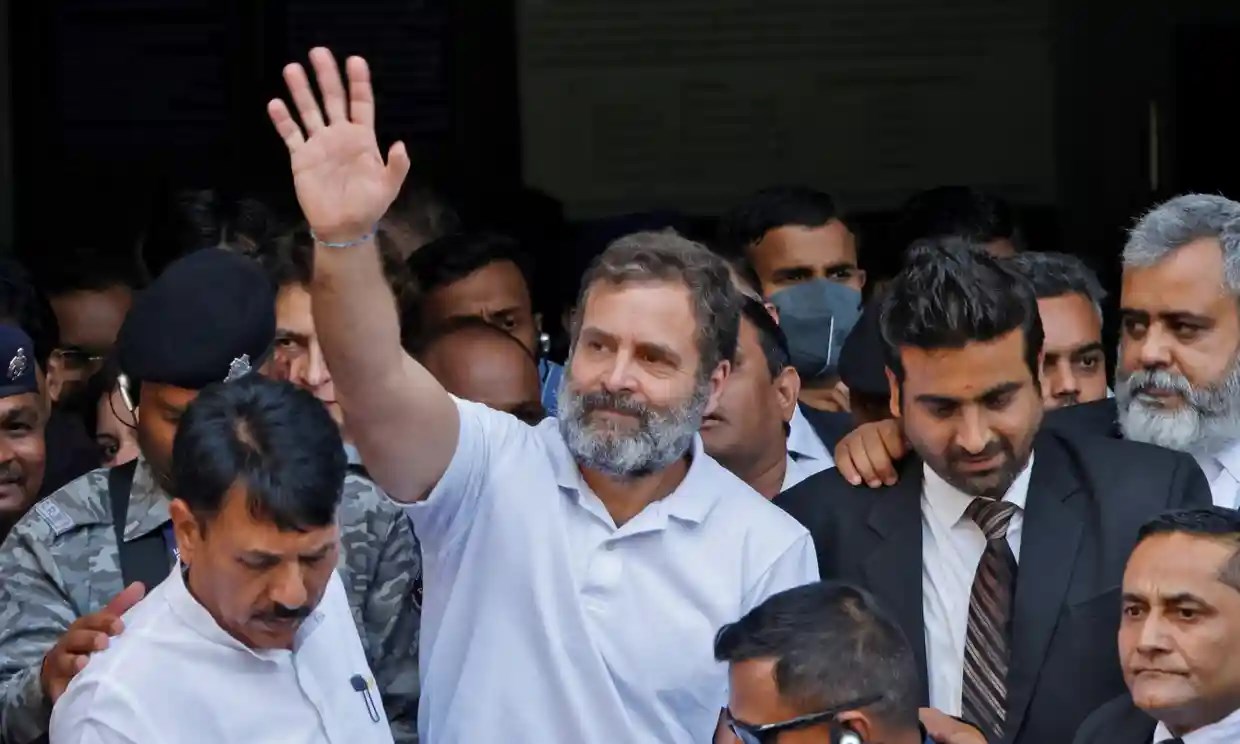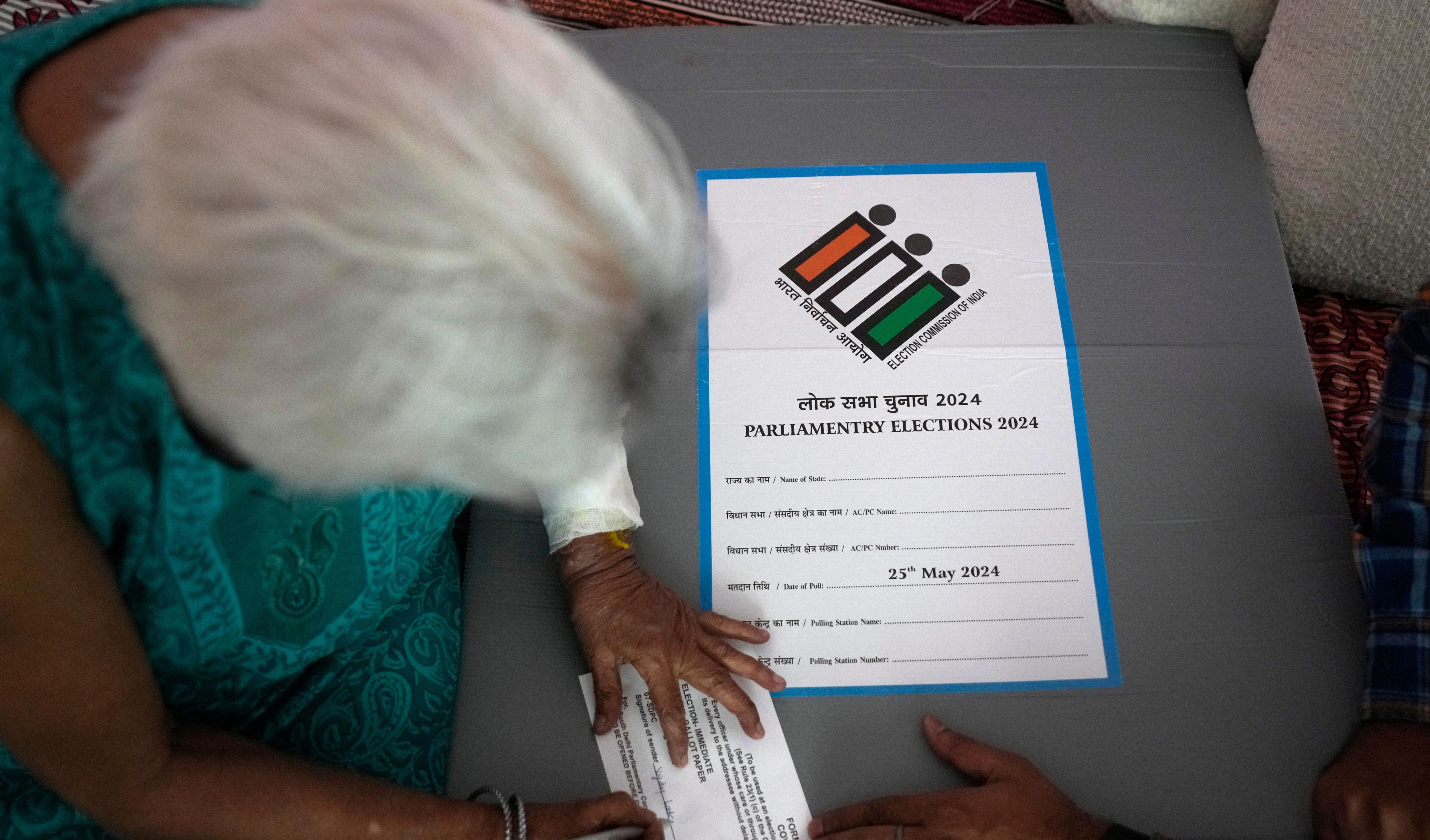Rahul Gandhi pursues fight against ‘excessive’ defamation case: India
In relation to his defamation case, India's opposition leader Rahul Gandhi is now appealing against arguing that the verdict was “harsh and excessive” and made in “hot haste”.
-

Rahul Gandhi, of the Congress party, leaving a court, in Surat, Gujarat, India, on 3 April 2023 (Reuters)
One case lately seemed to go through India's courtrooms exceptionally quickly for a system with a backlog of 40 million cases. The case concerned Rahul Gandhi, the most well-known leader of India's main opposition, and remarks he had made during a rally during the general election of 2019.
Gandhi had compared the current Prime Minister, Narendra Modi, in a speech to two convicted felons who both shared the same last name. Why do all these thieves share the last name Modi? Gandhi put the question to the throngs gathered in Karnataka.
In Gujarat, hundreds of miles away, Purnesh Modi, a member of Modi's Bharatiya Janata Party (BJP), seemed to take the comment personally. He filed a legal case against Gandhi, who was then president of the Congress party, claiming that he had defamed the “entire Modi community." It is worth noting that there are about 130 million persons with the name Modi in India.
The case moved along over the following two years at a glacial pace typical of Indian courts, with lengthy stretches between magistrate court hearings. However, after the judge rejected Purnesh Modi's plea that Gandhi be called to the witness stand a second time, Modi proceeded to the high court and asked that the case be put on indefinite hold. The High Court of Gujarat concurred.
It was put on hold until suddenly, on February 16 of this year, Purnesh Modi decided he wanted to unfreeze the case. Citing "new evidence" that would never surface, he went back to the high court.
The court once more concurred. This time, with a new judge in charge, the case advanced like a "bullet train", as per a member of Congress. In barely 20 days, there were seven hearings, and on March 23, the court had a decision ready.
Gandhi was promptly found guilty of defamation and given a maximum sentence of two years in prison. The conviction against Gandhi, according to attorney and constitutional law specialist Gautam Bhatia, is "completely indefensible from any perspective."
Following the conviction, the BJP moved fast: within 24 hours, Gandhi was kicked out of parliament, and 12 hours later, he was ejected from his MP's residence.
He is now appealing against the cases arguing that the verdict was “harsh and excessive” and made in “hot haste”.
Modi’s government has been widely criticized for exploiting the law to target and silence critics and opposition figures. Meanwhile, the BJP has denied any participation in Gandhi's case, claiming that the courts made an impartial judgment.
The big picture
Just over a week earlier, Gandhi had started organizing protests in parliament to demand answers about Modi's close friendship with the billionaire industrialist Gautam Adani, who has recently been accused of massive corporate fraud.
Gandhi’s dogged refusal to drop the Adani issue was seen to bring embarrassment to the prime minister and united the usually fractured opposition parties.
Those parties assert that the government frequently pursues political adversaries using state resources, particularly investigative organizations tasked with looking into corruption or fraud. Ninety-five percent of the actions taken by these agencies over the previous seven years have been against members of opposition parties, according to government statistics given by the opposition, and numerous MPs have been detained, jailed, or interrogated.
Many fear that the crackdown may get worse before the general election the following year.
However, for critics and legal experts, the Gandhi verdict has also fueled a growing worry that India's judiciary has increasingly come under the control of the government and is now being weaponized against opponents, with serious consequences for India's democracy, which is already seen as being threatened by an erosion of press freedom, the oppression of minorities, particularly Muslims, and an unprecedented concentration of power under the executive.

 4 Min Read
4 Min Read










